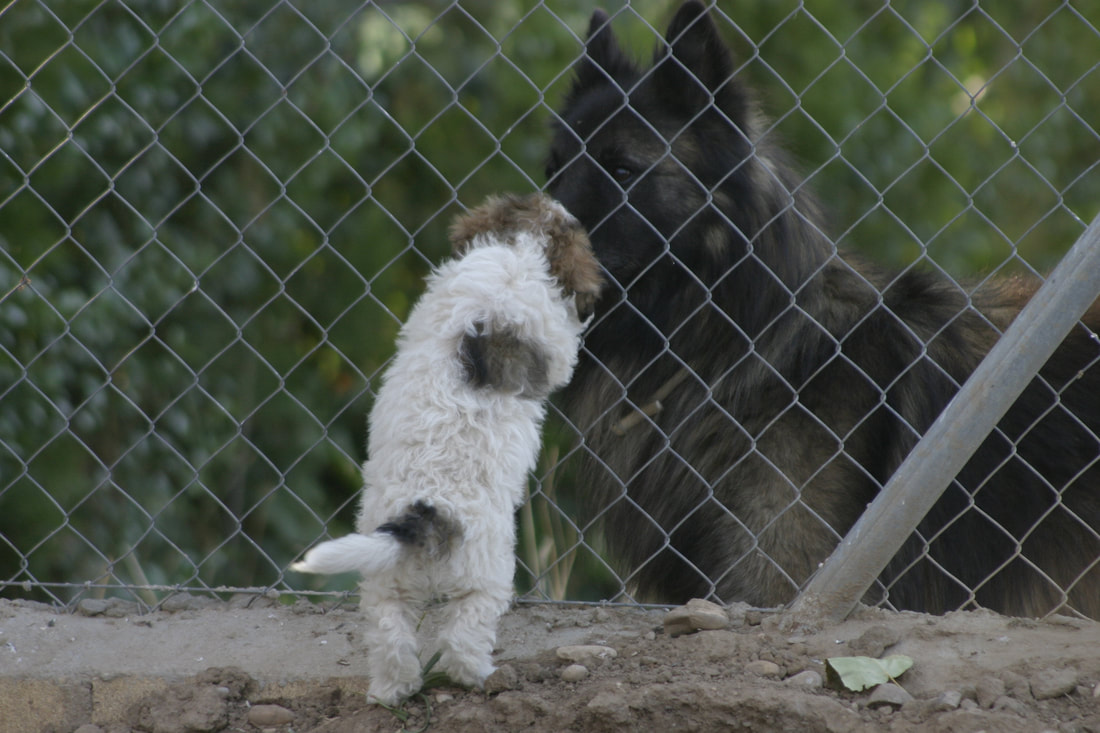You can find a lovely puppy at a shelter. Some of these puppies come from backyard breeders or from people who find themselves saddled with “oops!” litters – when an unexpected litter of puppies results when a female dog is impregnated by accident.
Still, the availability of puppies at a shelter or breed rescue group may depend on what breed is involved. Rescue groups rarely get puppies, let alone purebred Gold Retriever puppies, for example. In another group located in New York, there have only been three litters of puppies of the nearly 800 dogs that have been placed.
In any case, breed rescue groups and animal shelters have identical missions: To match homeless dogs with people who will love them and give them permanent homes. Shelters generally accommodate all breeds and mixes. Many are run by local governments. Some have a policy of euthanizing dogs who are not claimed or adopted after a certain period of time; others will keep adoptable dogs indefinitely.
Generally, all adoptable dogs that come to a shelter are given health examinations and any immunizations needed, and may be spayed or neutered. Many shelters also perform special tests to determine what type of temperament a dog has, and some offer training programs to help increase a dog's chances of being adopted.
Breed rescue groups focus on serving one breed or mixes in which that single breed predominates. Volunteers for these groups identify dogs in need, take them into their own homes for foster care, attend to their medical needs, and provide remedial training to help the dogs become more adoptable.
Typically, adoptable dogs remain with rescue groups until a permanent home is found. Sometimes, that permanent home turns out to be that of the foster care provider. Often, shelters and rescue groups work together on a dog's behalf. For example, if a dog's time is running out at an animal shelter, staff workers there might contact a rescue group and ask if that group can provide foster care for the dog. Such cooperation literally can be a lifesaver for a dog who needs a little more time to find a forever home.
Either way adopting a pet from a shelter or group is a very rewarding experience for you and the pet.
Still, the availability of puppies at a shelter or breed rescue group may depend on what breed is involved. Rescue groups rarely get puppies, let alone purebred Gold Retriever puppies, for example. In another group located in New York, there have only been three litters of puppies of the nearly 800 dogs that have been placed.
In any case, breed rescue groups and animal shelters have identical missions: To match homeless dogs with people who will love them and give them permanent homes. Shelters generally accommodate all breeds and mixes. Many are run by local governments. Some have a policy of euthanizing dogs who are not claimed or adopted after a certain period of time; others will keep adoptable dogs indefinitely.
Generally, all adoptable dogs that come to a shelter are given health examinations and any immunizations needed, and may be spayed or neutered. Many shelters also perform special tests to determine what type of temperament a dog has, and some offer training programs to help increase a dog's chances of being adopted.
Breed rescue groups focus on serving one breed or mixes in which that single breed predominates. Volunteers for these groups identify dogs in need, take them into their own homes for foster care, attend to their medical needs, and provide remedial training to help the dogs become more adoptable.
Typically, adoptable dogs remain with rescue groups until a permanent home is found. Sometimes, that permanent home turns out to be that of the foster care provider. Often, shelters and rescue groups work together on a dog's behalf. For example, if a dog's time is running out at an animal shelter, staff workers there might contact a rescue group and ask if that group can provide foster care for the dog. Such cooperation literally can be a lifesaver for a dog who needs a little more time to find a forever home.
Either way adopting a pet from a shelter or group is a very rewarding experience for you and the pet.

 RSS Feed
RSS Feed
